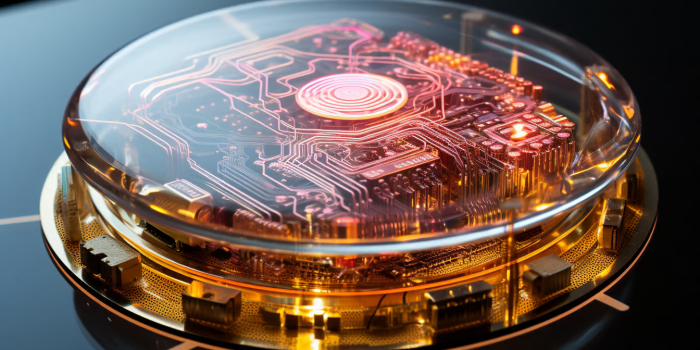In a groundbreaking fusion of biology and technology, scientists have achieved a remarkable feat—melding human brain tissue with a computer chip to craft a miniature cyborg within the confines of a petri dish.
Termed “Brainoware,” this innovative system involves the cultivation of brain cells, derived from human stem cells, into a brain-like tissue. This mini-brain organoid is then integrated with traditional hardware, serving as a tangible reservoir capable of performing mathematical equations and speech recognition.
The Brainoware project emerged from a quest to harness the efficiency of the human brain’s architecture to enhance computational hardware. With the burgeoning demand for computing power driven by artificial intelligence (AI), conventional silicon chips face limitations in terms of energy efficiency and performance.
Feng Guo, a study author and bioengineer at Indiana University, explained, “We wanted to ask the question of whether we can leverage the biological neural network within the brain organoid for computing. This is just proof-of-concept to show we can do the job.”

Researchers exposed the hybrid bio-computer to 240 audio clips featuring Japanese vowel sounds. to test its capabilities, the system exhibited a learning capacity, achieving an approximate 78 percent accuracy in recognizing distinct sounds. Additionally, it successfully predicted a Hénon map, a nonlinear dynamic system in mathematics.
While the results mark a significant milestone in utilizing brain organoids for computing, it’s crucial to note that Brainoware falls short of the hyper-intelligent capabilities of traditional AI systems. The prospect of sentient biocomputers remains distant, yet the study lays a promising foundation for future exploration.

Despite its potential, the ethical implications of Brainoware raise concerns. In an accompanying article, researchers not directly involved in the study emphasize the need to address ethical challenges before the technology advances further. They caution that as increasingly complex neural systems interacting with artificial environments emerge, the scientific community must scrutinize the neuroethical issues surrounding biocomputing systems incorporating human neural tissue.
Published in the journal Nature Electronics, this pioneering study may lead to foundational insights into learning mechanisms, neural development, and the cognitive implications of neurodegenerative diseases, even though the creation of general biocomputing systems could be decades away. The convergence of biological and computational realms in Brainoware sparks excitement about the future possibilities of biocomputing.


